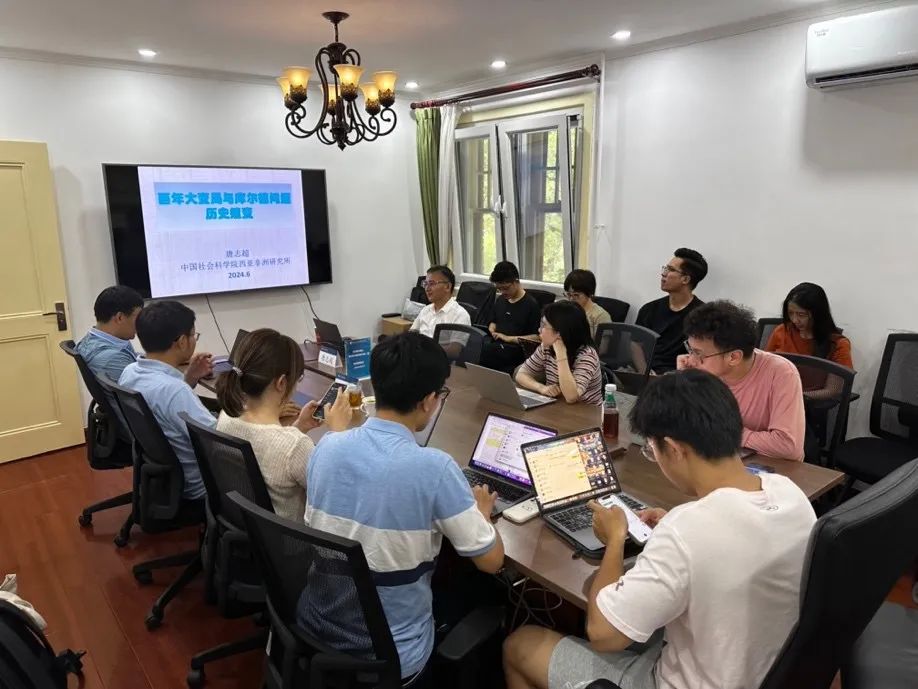
The first session of the “The Kurdish Question from the Perspective of Regional Civilization” lecture series, themed “Great Changes over a Century and the Historical Transformation of the Kurdish Question” and sponsored by Peking University’s Institute of Area Studies (PKUIAS), was held on June 19. The lecture was moderated by Prof. Zan Tao, deputy director of PKUIAS, with Prof. Tang Zhichao, research fellow at the Institute of West-Asian and African Studies, Chinese Academy of Social Science, as the presenter. Li Ruiheng, assistant professor at the School of Foreign Languages, PKU, as well as students from inside and outside of the university, attended the lecture and participated in the discussion.
Tang Zhichao started with his own research on Kurdistan, and then introduced basic background knowledge related to Kurdistan. “Kurdistan” means “land of the Kurds.” On the map, it mainly covers the south and southeast of Turkey, northern Syria, northern Iraq, and northwestern Iran. In addition, he also introduced the population, religion, language, natural geography and other basic information of Kurdistan. In Kurdish political history, Abdullah Öcalan and Mustafa Barzani, who is regarded as the father of contemporary Iraqi Kurds, as well as the political party they founded have had a profound impact on the Kurdish movement.
Tang Zhichao discussed the historical evolution of the Kurdish issue from four aspects: (1) the basic concept of the Kurdish issue; (2) the current situation of the Kurdish issue in Iraq, Turkey, Syria, and Iran, explained separately as its severity differs greatly in each country; (3) the four historical phases of the century-long evolution of the Kurdish issue — from World War I to the founding of the Republic of Turkey, the insurgency of the 1920s-1940s, its rapid development in the Cold War era and culmination of the post-Cold War era; and (4) the basic features of the century-long evolution of the Kurdish issue.
At the end of the lecture, Tang Zhichao analyzed the internal and external factors that led to the failure of the Kurds to establish a state, as well as the reason for the failure to resolve the Kurdish issue. In the end, Tang Zhichao pointed out that the solution to the Kurdish issue needs to take into account the differences between countries, and therefore will be a long-term process.
Prof. Zan Tao summarized the content of Prof. Tang Zhichao’s presentation. Student participants then engaged in further discussion with Tang Zhichao from the perspective of their own fields. Li Ruiheng further talked about the similarities and differences of Kurdish policies in the Big Powers from the perspective of the Big Power games.


